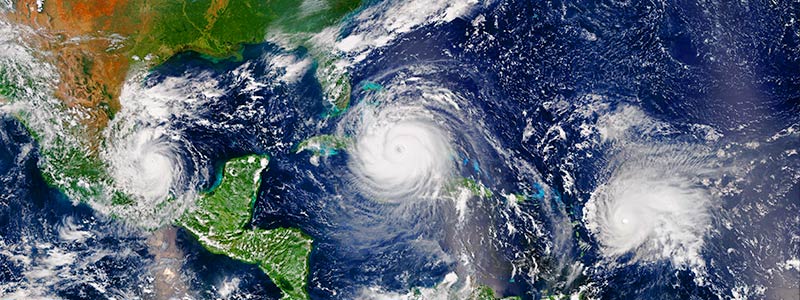
Dr. R. A. Foxworth, FICC, MCS-P
With the recent wildfires in the Northwest U.S. and the destruction left by hurricanes Harvey, Irma, and Maria, providers are left wondering how to maintain a compliant office while facing the wrath of mother nature. Every office should have a contingency plan in the event of a natural disaster. Here are a few things you can do to stay safe and compliant in the face of catastrophe.
- Data Backup: Document in detail the process of backing up the data in your office, including the third-party vendor that you use for data backup, where the data is stored, and the frequency at which your data is backed up. You should also include your process for confirming successful backups and the steps you take in the event a backup has failed. Your third-party vendor should also have a process for protecting this data in the event of a disaster. Many vendors duplicate data in multiple data centers spread around the country. Request in writing, how your information is protected. And from personal experience in my clinic unrelated to a natural disaster, one more step is critical. We all assume the backup is restorable when the fact is you don’t know it is unless you have tested it. So, whether you handle your own backup process or outsource it, make sure you perform periodic restore functions to confirm your backups are functional and restorable.
- Emergency Plan: Every business owner should have a written emergency plan in place and review it with their staff at least annually. Your plan should include what to do and where to go in the event of a fire or tornado. Set out procedures to follow if you must evacuate due to a disaster. It should include plans for how and when you will decide to re-open for business following an emergency, how you will communicate with your employees and patients before and after an emergency situation, and how you will let your employees know when and how to report to work. FEMA offers a great resource on creating an emergency plan for your business at https://www.fema.gov/media-library/assets/documents/89506. In the military, the term “JUMP BAG” has been used in the past, meaning if you had to get out of your office an emergency, what would you grab or already have in your jump bag that might help you get back to normal as soon as possible.
- Conducting Business After a Disaster: Define the process for running your business after a disaster situation. Recently, we received calls from several of our clinics that had opened their doors even though they were still without power following Hurricane Irma. What are your policies and procedures for maintaining critical business functions if you were to be open without power? How do you document the services provided? How would you collect payments? Are additional security measures needed? Depending on the disaster, your ability to open your practice and the services you provide could vary.
- Training and Testing. 1-2 times annually, during a team meeting, test your emergency plan. Determine what items were left out, what services can and cannot be provided if, for instance, you were without power. How would you access your patient information? Consider an on-site backup generator, even a small one that could at least run your computers or other critical equipment. How would you document a patient visit and what are the policies for storing this information until power is restored? Who is responsible, and in what time frame, should this information be entered into your software system? Your team should feel confident and comfortable when it comes to running your office during and following an emergency situation.
- Documentation. Create documentation that outlines all the above, including your training and testing dates. Include the results of training and testing, and any modifications that were made as a result. Include names and contact information for third-party vendors responsible for information backup and your software. Include a list of all the systems in your office and in what order they should be restored. Some systems are more critical than others when it comes to running your practice.
Some parts of the country are more susceptible to natural disasters than others, however, but prepare for them nevertheless. Several years ago, when Katrina hit the coast of Mississippi, many businesses in our area were unprepared when the capital city of Jackson and surrounding areas found themselves without power and gasoline. Although your business may not be located at ground zero, don’t assume that you won’t be affected. At the time of this article, we had been notified of one organization raising money to assist those affected by Hurricane Harvey. If you would like to support these efforts, a link has been provided below. Other chiropractic state associations in states affected by wildfires, hurricanes, and floods, may have similar efforts underway. Please support the recovery of our colleagues in those hard-hit areas in any way you can.
➤ Chiropractors Helping in Relief Operations (C.H.I.R.O) Hurricane Harvey Assistance in Texas








 ▶︎
▶︎  Why is the Discount Challenge prize amount $15,024? Because that is the average “per-occurrence” fine for Medicare inducements. That’s not $15,024 per patient, that’s not per provider, that’s PER VISIT. Stinks, doesn’t it? To us, the prize amount is worth the investment if we can help our profession better understand proper discounting.
Why is the Discount Challenge prize amount $15,024? Because that is the average “per-occurrence” fine for Medicare inducements. That’s not $15,024 per patient, that’s not per provider, that’s PER VISIT. Stinks, doesn’t it? To us, the prize amount is worth the investment if we can help our profession better understand proper discounting.